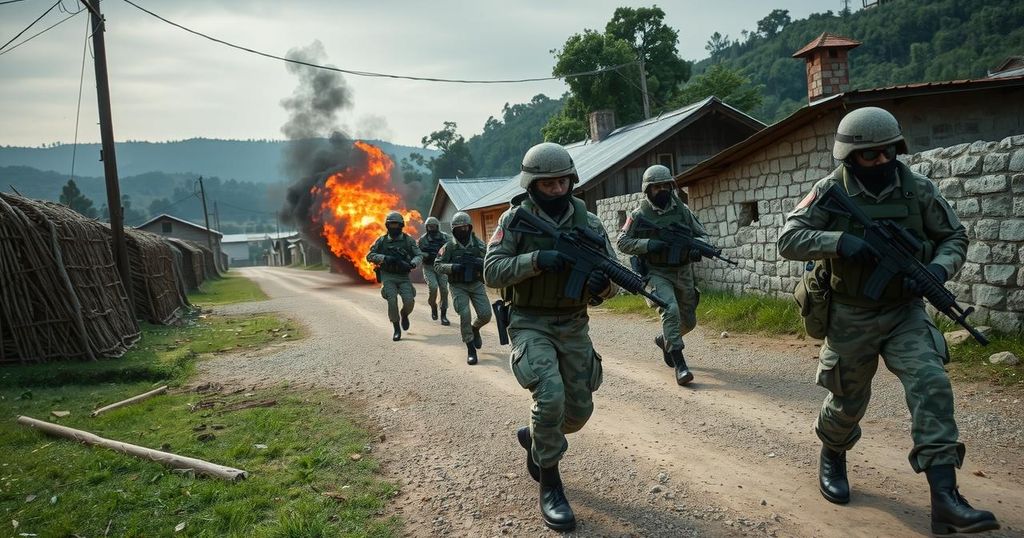M23 rebels have seized the town of Masisi, strategically located near Goma, intensifying the ongoing conflict in eastern DRC and displacing thousands. This development raises concerns about regional stability and potential threats to major cities. The DRC government plans to restore authority while rejecting direct dialogues with the group amid ongoing accusations against Rwanda for support of M23. The situation reflects deep-rooted ethnic tensions and a worsening humanitarian crisis.
In a significant development in the ongoing conflict in the Democratic Republic of the Congo (DRC), M23 rebel forces have captured the strategic town of Masisi, located approximately 80 kilometers from the provincial capital, Goma. This takeover adds to the group’s recent territorial gains in eastern DRC. Local officials reported that M23 rebels reached Masisi on Saturday afternoon, prompting concerns about the stability of the region. The town serves as an essential administrative center and holds considerable agricultural and mineral wealth, making it a key area of interest for the rebels.
The security situation in Masisi is reportedly tense, with thousands of individuals having been displaced and seeking refuge in adjacent areas, including the already burdened city of Goma, which is home to four million internally displaced persons. Both Alexis Bahunga, a member of the provincial parliament, and Jean-Pierre Ayobangira Safari confirmed that while the rebels have taken control of Masisi for the time being, government forces are likely to retaliate. The DRC government, led by President Felix Tshisekedi, has maintained a stance against direct negotiations with the M23.
Amid this turmoil, international observers highlight the humanitarian crisis unfolding in the region, exacerbated by the ongoing fighting which has forced nearly one million people to flee their homes over the past year. Furthermore, the DRC accuses neighboring Rwanda of providing support to M23, although Kigali denies such allegations. Efforts to mediate peace talks have faced setbacks, culminating in the cancellation of discussions aimed at resolving the conflict. Given the strategic significance of Masisi, fears have emerged regarding potential threats to major urban centers such as Goma and Bukavu, underscoring the conflict’s broader implications for regional stability.
The M23 insurgency has its origins in the complex socio-political dynamics of eastern DRC, especially involving ethnic tensions among the Tutsi and Hutu groups, dating back to the Rwandan genocide in 1994. M23 claims to protect Tutsi populations against Hutu-led militias that fled across the border into DRC. The group has been involved in various conflicts over the past decade, asserting control over crucial territories rich in resources. The DRC’s government has continuously faced challenges in restoring peace and security amid humanitarian crises stemming from mass displacements and armed conflicts. The geopolitical implications of Rwanda’s involvement further complicate efforts for peace, with accusations of external support perpetuating a cycle of violence.
The capture of Masisi by M23 rebels represents a critical juncture in the ongoing conflict in eastern DRC, raising alarms over the destabilization of the region and the humanitarian crisis that has emerged. As government officials pledge to reclaim control, the situation remains precarious, with thousands displaced and living in dire conditions. The complexities of ethnic tensions, external influences, and the significant resource wealth of the region highlight the multifaceted nature of this conflict. The international community must remain vigilant to assist in humanitarian relief and to support diplomatic efforts aimed at sustainable peace.
Original Source: www.aljazeera.com






